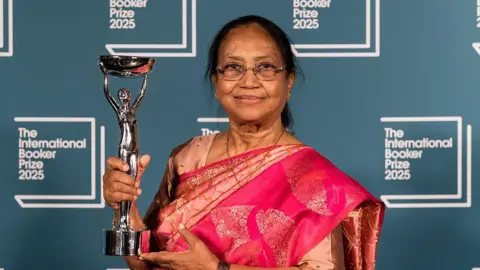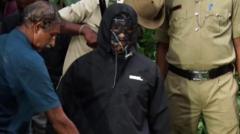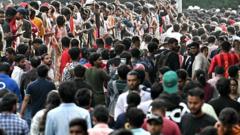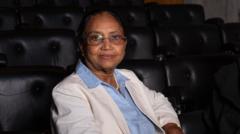Banu Mushtaq, the International Booker Prize winning-author, has found herself in the midst of a controversy after she was invited to inaugurate a prominent festival in the southern Indian state of Karnataka.
Last week, the state's Congress government announced that Mushtaq - who won the Prize earlier this year for her short story anthology, Heart Lamp - would inaugurate the Mysuru Dasara festivities in Mysuru (formerly called Mysore).
Mysuru Dasara, also called Naada Habba (which roughly translates to festival of the land in Kannada), is an annual 10-day event celebrated for decades. Thousands flock to the city to participate in grand festivities, which include cultural performances, elephant parades, exhibitions, and fireworks.
The decision to invite Mushtaq sparked criticism from some Bharatiya Janata Party (BJP) leaders - in opposition in the state - who argue that Mushtaq, a Karnataka-born Muslim, should not inaugurate a Hindu festival. Dussehra is a Hindu festival celebrating the victory of good over evil, yet Mysuru Dasara is conducted by the Karnataka state government, inclusive of people across faiths.
Mushtaq expressed her honor in being invited, emphasizing her personal connection as a participant in the festivities during childhood. However, the controversy remains unresolved.
Some BJP leaders have raised concerns regarding Mushtaq's previous comments about the Hindu goddess Bhuvaneshwari, seen as representative of Kannada identity.
Mushtaq made history as the first author writing in Kannada to win an International Booker. Her acclaimed work 'Heart Lamp,' translated into English by Deepa Bhasthi, was praised for its portrayals of survival and resilience among women, particularly Muslim women facing societal challenges.
The BJP's criticisms were noted by several party members. Despite acknowledging Mushtaq's literary contributions, they demanded she clarify her reverence towards the Hindu deities tied to the festival.
Mushtaq addressed the issue stating that politicians should discern appropriate issues to politicize, affirming her commitment to participate in the festival.
The ongoing debate underscores a larger concern regarding maintaining cultural inclusivity within Karnataka, as supporters of Mushtaq argue for the festival's secular legacy amidst rising Hindu nationalism.


















